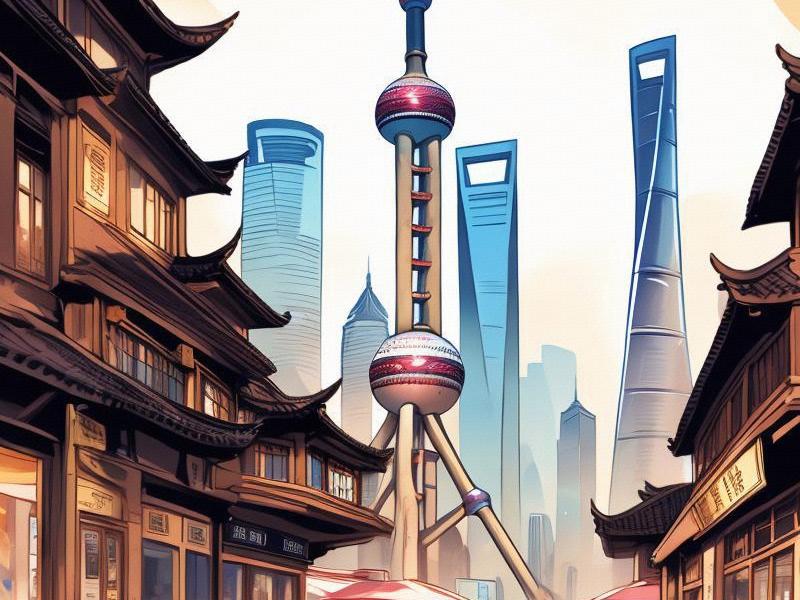
Nestled along the eastern coast of China, Shanghai is not just a city; it's a testament to the country's historical evolution and its aspirations for the future. The city's strategic location at the mouth of the Yangtze River has made it a pivotal point in trade and commerce for centuries. Today, it stands as one of the world's most dynamic cities, a hub for finance, culture, and innovation.
The cultural fabric of Shanghai is a rich tapestry woven from threads of tradition and modernity. The city is home to a myriad of historical sites that tell the story of its past. The Bund, a waterfront area lined with colonial-era buildings, offers a glimpse into the city's history as a trading port. The Yu Garden, a classical Chinese garden, provides a serene escape from the hustle and bustle of urban life, showcasing the art of traditional Chinese landscaping.
Shanghai's transformation into a global city is perhaps best exemplified by its skyline. The iconic Oriental Pearl Tower, with its unique design resembling a string of pearls, has become a symbol of the city's modernity. The Shanghai Tower, the tallest building in China and the second-tallest in the world, stands as a testament to the city's ambition and architectural prowess. These landmarks, along with the futuristic Pudong district, showcase Shanghai's ability to blend tradition with cutting-edge design.
阿拉爱上海 The city's cultural scene is as vibrant as its skyline. Shanghai is a melting pot of cultures, with influences from China's various regions as well as from abroad. The city hosts numerous cultural festivals throughout the year, including the Shanghai International Film Festival and the Shanghai Fashion Week, which attract visitors from around the globe. The French Concession, with its charming cobblestone streets and French-style architecture, is a popular spot for art galleries, boutiques, and cafes, offering a taste of Shanghai's cosmopolitan vibe.
Shanghai's culinary scene is another aspect that reflects its cultural diversity. The city is renowned for its street food, with vendors serving up a variety of dishes that range from sweet to savory. Peking duck, pan-fried buns, and xiaolongbao (soup dumplings) are just a few of the local delicacies that visitors should not miss. The city's restaurants offer a wide array of cuisines, from traditional Chinese fare to international dishes, catering to the tastes of its diverse population.
The rapid modernization of Shanghai has not only transformed its physical landscape but also its economy. As one of China's four municipalities directly under the central government, Shanghai holds a unique position in the country's administration and economy. It is the financial center of China, with the Shanghai Stock Exchange being one of the largest in the world. The city's port is the busiest in the world, handling a significant portion of global trade.
上海贵族宝贝自荐419 Shanghai's economic success is also reflected in its skyline, which is dotted with skyscrapers and modern office buildings. The Lujiazui Financial District, home to the headquarters of many multinational corporations, is a symbol of the city's economic might. The city's infrastructure is state-of-the-art, with efficient public transportation systems, including the world's first maglev train, which connects the city center to Pudong International Airport.
Despite its rapid development, Shanghai has made significant efforts to preserve its historical and cultural heritage. The city has implemented various initiatives to protect its historic buildings and districts, ensuring that they coexist with modern developments. This commitment to preserving its past while embracing the future has earned Shanghai international recognition.
上海龙凤阿拉后花园 The people of Shanghai are as dynamic as the city itself. The city's population is a mix of native Shanghainese and migrants from other parts of China, creating a diverse and cosmopolitan community. The locals are known for their entrepreneurial spirit and their ability to adapt to the changing times. The city's youth are particularly influential, driving trends in fashion, technology, and lifestyle.
Shanghai's role as a global city extends beyond its economic and cultural significance. It is a hub for international diplomacy and cooperation. The city has hosted numerous high-profile international events, including the G20 Summit and the World Expo, showcasing its ability to host large-scale events and its commitment to global engagement.
The future of Shanghai is bright, with the city continuing to evolve and innovate. The Chinese government has outlined plans for the city's development, focusing on sustainable growth and the improvement of living standards. Initiatives such as the construction of the Hongqiao Business District and the expansion of the city's metro network are aimed at enhancing the quality of life for its residents.
In conclusion, Shanghai is a city that embodies the spirit of China's transformation. It is a place where history and modernity coexist, where tradition and innovation blend seamlessly. As a global city, Shanghai continues to attract visitors and investors from around the world, offering a glimpse into the future of urban living. Its vibrant culture, rapid modernization, and status as a global metropolis make it a city that truly stands out on the world stage.
